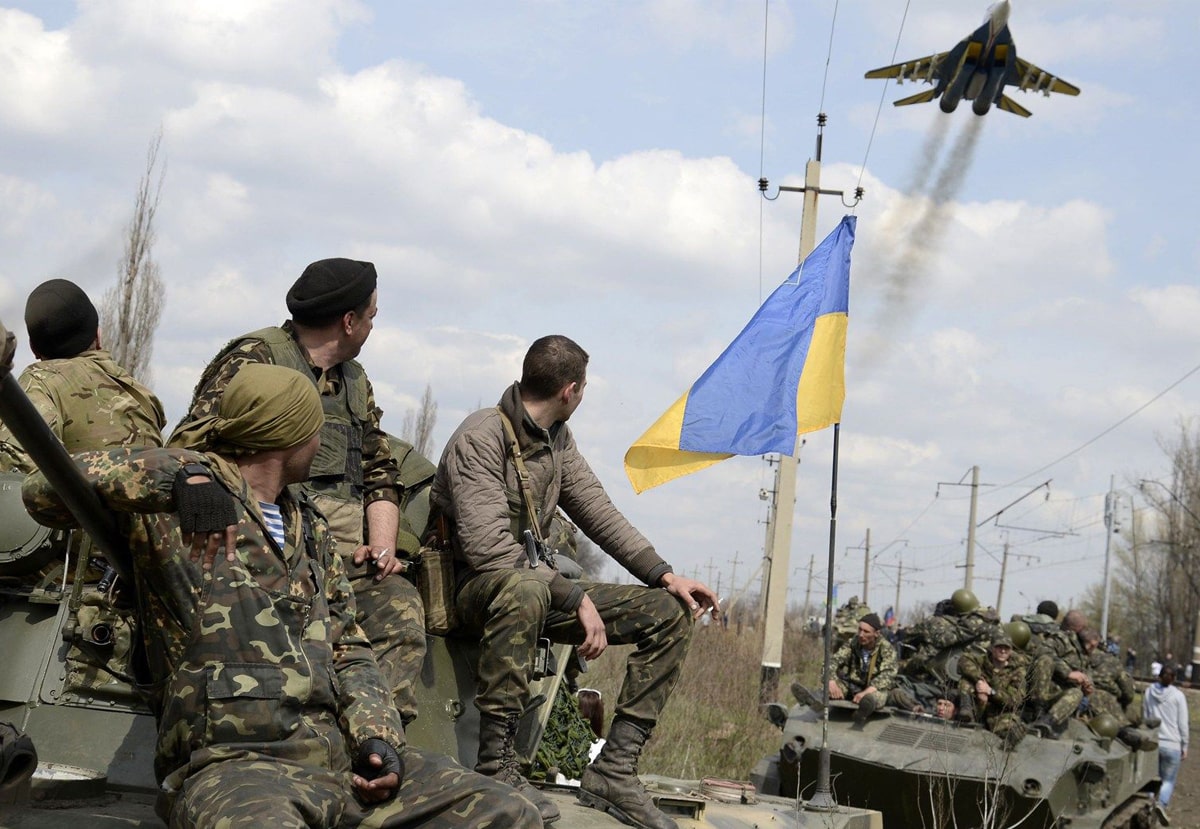From Russia’s point of view, one of the main reasons for the decision was the concern about Ukraine’s possible membership in NATO, which was considered as Moscow’s red line. Russia was also concerned that the possibility of a military aggression over time and gradual strengthening of Ukraine’s defense situation would become more difficult, therefore it saw the conditions for such an aggression appropriate at this time. However, without a significant population of separatist Russians in eastern Ukraine, Russia could not have easily obtained the necessary pretext for such invasion; the crisis had, in fact, entered a new phase since 2014 with the annexation of Crimea and the loss of control over parts of the Donbas region, and finally, with the recognition of the independence of the two self-proclaimed republics of Luhansk and Donetsk, in view of Russia, provided sufficient justification for a military invasion that would put severe pressure on the Ukrainian people.
On the other hand, this crisis is considered as part of a wider geopolitical confrontation between Russia and the West, and Moscow has shown that in addition to the military dimension, it is also pursuing a combined war against NATO and the European Union; Russia, for example, strongly supported Lukashenko in the wake of the Belarussian election protests and did not allow his ally to fall. Belarus also uses the tool of asylum seekers as leverage against the European Union, which would not have been possible without the green light of the Kremlin, and highlighted Europe’s weakness with regard to the refugee issue.
Meanwhile, continuation of the war in Ukraine could create a new crisis in the field of immigration, which for Europe, except for the increase in differences between member countries and the growth of populism, will entail nothing else. However, the outbreak of war has led some populist politicians and pro-Putin parties in Europe to condemn, at a crossroads, the measure.
It should also be noted that although in the months leading up to the war some in the West pursued a policy of appeasement towards Russia, in reality NATO had no obligation to send troops and face a direct military confrontation with Russia, and in this regard, it has not violated its legal obligation towards Ukraine. On the other hand, even this attack has made some non-member countries, such as Finland, think about joining NATO. It should be noted that although Ukraine has expressed interest in joining NATO during this period, there have been many obstacles on the way, including the inability to meet membership requirements and internal reforms, domestic opposition, and the intermittent pursuit of membership applications, concerns of some over possible Russian response and, ultimately, NATO’s unwillingness to expand and offering a new commitment.
Some argue that Ukraine did so by ceding its nuclear facilities in the 1990s, and blame Kiev’s move in the Budapest agreement for a guarantee of territorial integrity; but it should be noted that this issue was not simply what was reflected in the media; in fact, on the one hand, Russia has control over many of those equipment and the possibility of operating them and, on the other hand, the optimism prevailing in those years did not allow such an action, which was inherently contrary to the spirit of non-proliferation of nuclear weapons; ultimately, this agreement provided no enforcement guarantees for the other party; it seems that in 2014, following the annexation of Crimea, it could not help Ukraine.
Currently, the only tool in the hands of the West is the issue of sanctions against Russia; of course, before that, there was no single voice in facing such event from Europe; for example, some countries, such as Italy, Hungary and Germany, have closer ties with Russia.
In analyzing Moscow’s move it can be referred to the fact that Russia now seems to be comparing itself to the Soviet era; especially given that since 2004 with the membership of Eastern European and Baltic states it is bordering with NATO, it does not consider NATO to be allowed to expand to its borders in Ukraine and considers it contrary to its national security.
Finally, it should be noted that some approaches in the field of international politics are more of a fixed geopolitical component than an ideological one; many after the October Revolution believed that the new regime in Russia would have a different approach to its neighbors, but it soon became clear that the communist leaders were no less ambitious in their territorial development than some of their predecessors, and some called them new tsars. However, just as Eastern Europeans remember the half-century of Russian expansionism and membership in the Eastern Bloc and the suppression of the Budapest uprising of 1956 and the Prague Spring of 1968, Russia remembers two major attacks by Napoleon of France and Hitler’s Germany, and considers Eastern Europe as its sphere of influence.










0 Comments